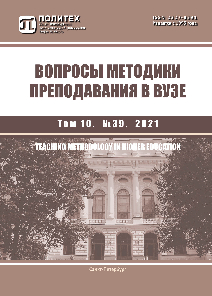Features of pragmatics and the study of modal words depending on the type of discourse (with lexeme “of course” as an example)
The present paper deals with the pragmatics and semantics of modal adverbs in Russian and their frequency in modern academic and mass media discourse. Modality as a language category is a complex phenomenon that can be seen from the grammatical, functional, semantic or cognitive points of view. The semantics of modal expressions reflects a subjective world of the speaker and are closely connected with the extra linguistic factors such as communicative situation, linguistic personality of the speaker, etc. This issue is relevant when teaching Russian to foreigners and preparing them for master programs, in particular. The ability to understand semantics and pragmatics of modal words in academic and mass media discourse is a key component of a communicative competence that enables a person to perform successfully in terms of Russian professional and day-to-day communication. The features and frequency of modal adverbs functioning were identified in the course of research as well as the difficulties foreign students may face when studying Russian modal adverbs, with the lexeme “of course” as example. The study analyses research papers in law and science disciplines as well as subtitles for modern YouTube and radio programs. The methods used include the continuous sampling method to choose the contexts where modal words are used as well as statistical and comparative analysis of the chosen contexts. The results of the given study may be used when developing or improving existing preparatory master programs for foreigners as well as for creating independent courses for studying Russian as a foreign language.



